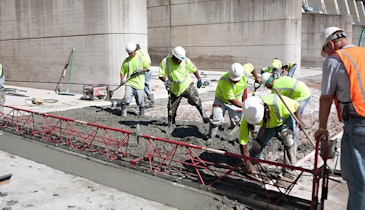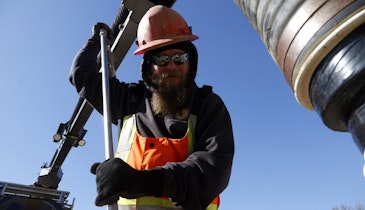I didn’t take over the editorial reins of this magazine with a vast background in the water and wastewater industry. I took over with a little knowledge and the curiosity that drives all journalists, and I’ve spent the past two years learning everything I can about your jobs, the issues you face, and the ways in which you’re going about making your systems and communities stronger.
One of the things I really like about this industry is the people I meet. The operators and supervisors I talk to, in places like Plainfield, N.J, and Pierce County, Wash., both featured in this issue of MSW, have been a big part of my education. You all deal with a common pool of issues. For some utilities the focus is I&I and CSOs, for others it’s hydrogen sulfide corrosion and manhole rehabilitation. In Plainfield, Robert Villee has made it his mission to find a solution to the increasing volume of “flushable” wipes that clog the collections system.
Talking with all these people gives me an inside look at the problems their utilities are facing, but more important, it gives me insight into how they’re going about solving those problems. It’s easy to understand how flushable wipes that don’t dissolve could present a myriad of problems in a collections system, but talking with Villee about his experiences and the efforts he has made in conjunction with others to address the manufacturers and find a solution gave the issue a real context. I met him at the Water Environment Federation Technical Exhibition and Conference in Chicago last October, and I came away with a much better understanding of the issue and the real ways in which it’s impacting utilities across the country.
I like to see and understand how you’re solving problems. That’s a big focus in this magazine. We like to highlight your resolve and ingenuity and use your successes as an example for the rest of the industry.
The profile on Pierce County, Wash., in this issue provides a look at how a collections system was born from water-quality problems and how the utility’s collaborative, progressive approach to maintenance and rehabilitation has helped it stay ahead of any serious problems. We print lots of stories touting the value of this type of approach, but Pierce County is really a great example of how and why it works. Talking to Terry Soden and Karl Imlig gave me a better understanding of what it takes to keep a system in top operating condition. They didn’t wait until they were besieged with problems to find a better approach; they are constantly evaluating their approach and adjusting as they go to ensure their system stays in great shape, and that’s a great value for customers.
Expo time
The 2014 Pumper & Cleaner Environmental Expo has finally arrived. If you’re here in Indy reading this, I hope you’ll flag me down if you see me and introduce yourself. I’m always interested in hearing about the work you’re doing, and I’m always looking for a good story to share with our readers.
If you weren’t able to make it to this year’s Expo, start planning for 2015. You won’t be disappointed.
Enjoy this month’s issue.





